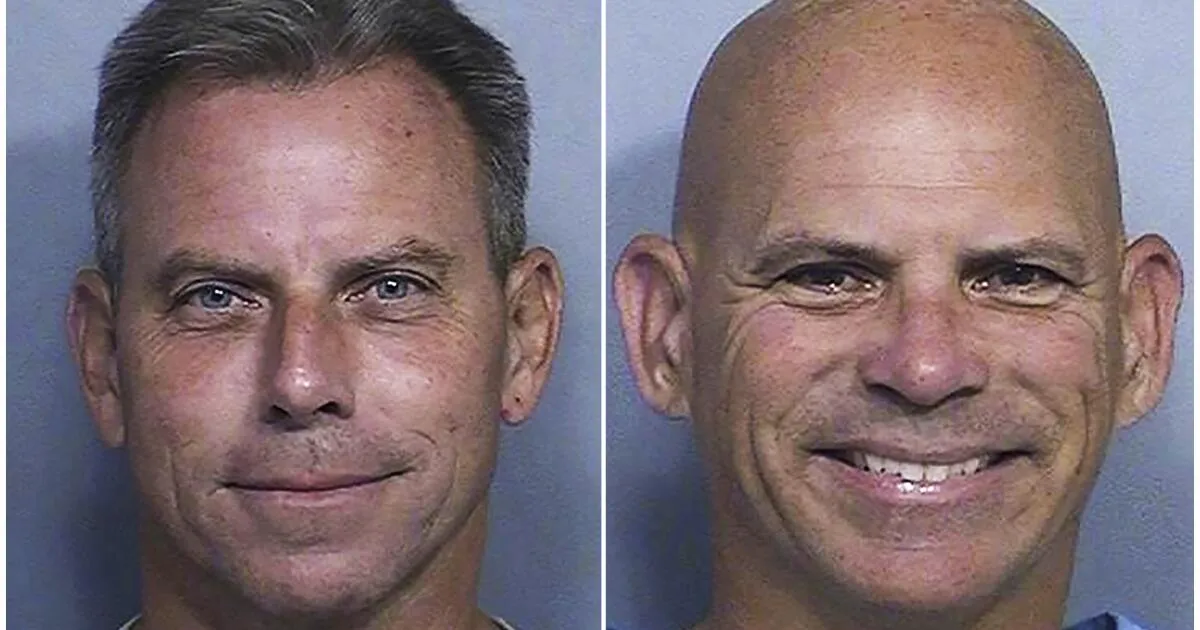
In a significant ruling, Lyle Menendez has been denied parole by California officials, following a similar fate for his younger brother, Erik Menendez. The brothers were convicted for the 1989 shotgun murders of their parents, Jose and Kitty Menendez, and Lyle's bid for freedom was rejected after a rigorous parole board hearing.
During the hearing, which lasted over 11 hours, the parole board scrutinized Menendez, now 57, about his past actions, including attempts to persuade witnesses to lie during his trials and the extravagant lifestyle he and Erik led shortly after their parents' deaths. "I felt this shameful period of those six months of having to lie to relatives who were grieving," Lyle stated, expressing that he did not find any relief from the murders. Instead, he described a sense of obligation to suffer for his actions.
Lyle Menendez portrayed himself as a protective figure for Erik, but he admitted that the murders were not a solution to the sexual abuse they reportedly endured from their parents. "I destroyed his life. I’d rescued nobody," he reflected somberly. This emotional introspection was a focal point during the hearing, revealing the complicated nature of their familial relationships.
The proceedings were marred by controversy after a recording of Erik's earlier parole hearing was leaked, raising concerns among family members and legal representatives about the violation of privacy. Tiffani Lucero-Pastor, a relative of the Menendez brothers, expressed her frustration, stating, "You’ve misled the family." The California Department of Corrections and Rehabilitation (CDCR) acknowledged the error, describing the release of the audio as "erroneous."
Throughout the hearing, Commissioner Julie Garland questioned Menendez's credibility, specifically referencing his past manipulations and lies. Menendez attempted to convey his remorse, claiming that it possibly contributed to a "strong belief" in his innocence. However, the board raised concerns about his history of deception and impulsiveness. "You seem to be different things at different times," Reardon remarked, emphasizing the inconsistencies in Menendez's narratives.
Although Lyle Menendez was denied parole for three years, he may apply for an earlier hearing. The parole board acknowledged his lack of violent incidents during his three decades in prison, as well as a strong support system waiting for him outside. "In many ways, you look like you’ve been a model inmate," Garland remarked, yet she also pointed out his ongoing struggles with antisocial personality traits.
The board's decision has sparked a debate among legal experts and the public, many of whom expected a different outcome given the brothers' long incarceration. Dmitry Gorin, a former prosecutor, noted that the parole board's decision aligns with its historical reluctance to release individuals convicted of violent crimes. "This case is no different," he stated, highlighting the board's commitment to public safety.
Despite the denial, family members expressed pride in how both brothers presented themselves during the hearings. They emphasized that this is not the end of the road, stating, "This is not the end of the road. Both will go before the Board again, and their habeas petition remains under review." The brothers have been involved in various rehabilitation programs while incarcerated, which their supporters believe demonstrate their commitment to change.
The Menendez brothers' case remains one of the most complex and contentious in legal history. With two dead parents and two individuals who have themselves been victims of abuse, there are no clear winners in this tragic saga. Neama Rahmani, a former federal prosecutor, pointed out that the case is a reminder of the deep scars left by violence and abuse. As the Menendez brothers continue their fight for freedom, the implications of their past actions will linger in the public consciousness.